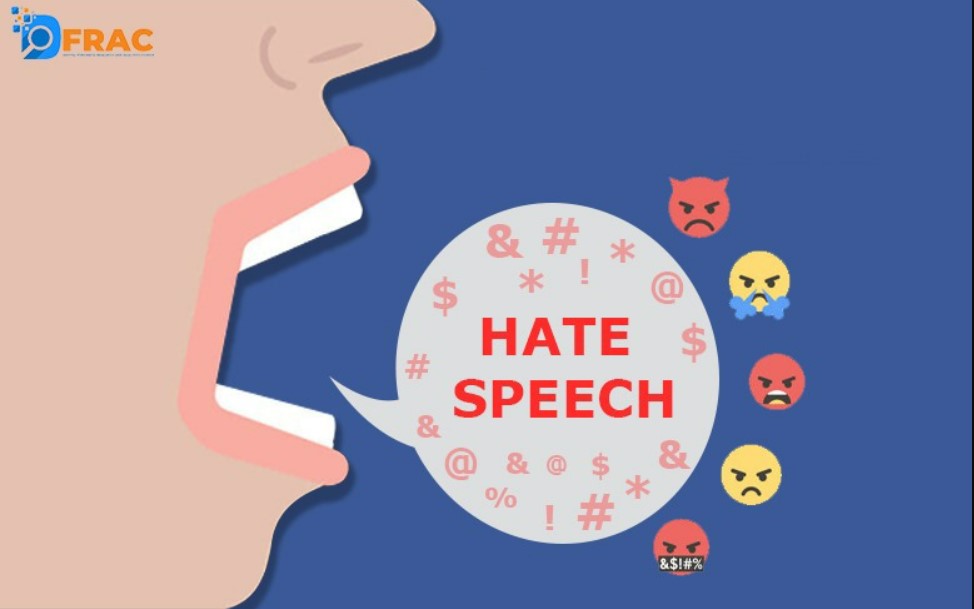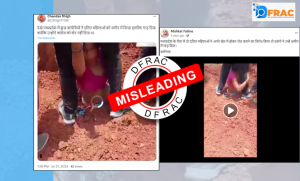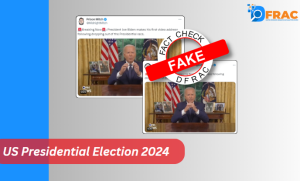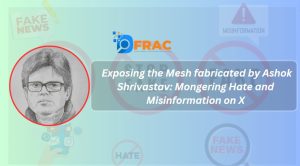
India is a diverse country with many religions and faith and a mix of several conservative and modern cities and societies. But still the nation has had its fair share of riots to pogroms in different parts. In most cases, politics has been the main culprit in inciting violence and tensions between communities. And in the age of social media, the hyper local sentiments have got wings to either make or break the social fabric of a region. Therefore, these means of communication and letting the message out among masses have created a rumour monster that can create unrest in villages, towns and cities. Be it something as small as taking out a tiranga yatra to religious juloos to mass polarisation.
What happened in Uttar Pradesh’s Muzaffarnagar between Muslims and Jats in 2013, where a fake video of Pakistan was circulated widely creating tension in the villages and towns to transform into a full blown riot. Love Jihad is yet another example that sparks outrage in this western part of the state. It was only 7 years later that in 2020 the unity was restored during farm laws protests.
Now sample this: “Three days ultimatum to Delhi Police – get the roads of Jafrabad and Chand Bagh cleared, after that don’t convince us, we will not listen to you either, only three days.”
Even three days did not pass after this statement of BJP leader Kapil Mishra and fire started burning in many areas of North East Delhi.
People believe that after this statement of Kapil Mishra, the situation in North East Delhi started deteriorating. Even BJP leader and MP Gautam Gambhir had to say, “Whether it is Kapil Mishra or whoever has given provocative speeches, strict action should be taken against them. This is no longer an issue of any party. This is the issue of the whole of Delhi. Whatever action is taken against Kapil Mishra, I support it.” This was not the first time that Kapil Mishra was accused of making inflammatory speeches.
In an era where people are expressing their joy and sorrow on social media, the ‘crop of provocative speeches’ is also seen ‘wasting’ on Facebook and Twitter. In such a situation, the question arises that what does the law say on these ‘inflammatory speeches’, what can it do, why is the law silent after all and what are its compulsions?
What the law states?
‘Inflammatory speech’ is not defined in any law of India. However, there are provisions in some laws that prohibit certain types of speech and keep them out of the purview of freedom of expression.
Under different provisions of the Indian Penal Code, it is an offense to incite disharmony in the society on the basis of religion, race, place of birth, residence, language etc. Even imputing that people belonging to any religion, race, language, or caste or community cannot have true faith or allegiance to the Constitution of India is an offense and can be punished with imprisonment of up to three years.
Anything said with the intention of hurting the religious sentiments of any class also comes under this purview. Spreading hatred between two classes or communities in the society is also an offense under IPC.
A person convicted of illegally using the right to freedom of expression becomes disqualified from contesting elections under the Representation of the People Act. The Code of Criminal Procedure gives the right to the government and the administration that it can stop anyone from disturbing social harmony.
Apart from this, under the Protection of Civil Rights Act, the law preventing the illegal use of religious institutions, the Cable Television Networks Regulation Act and the Cinematograph Act, a provision has been made to prevent ‘inflammatory speech’ and punishment for doing so.
What can the police do?
Even though there is no clear definition of ‘inflammatory speech’ in the law, there are so many legal provisions that the police cannot sit with their hands on their hands. Experts say that in any case, including hate speech, the police should register an FIR only after the preliminary investigation is registered. If the matter is serious and if the FIR is registered under serious sections, then immediate arrest can also be made.
But what should happen in those cases where hate speech is getting fertilizer and water on social media. In most cases of hate speech through social media, the police act according to the stand of the government as is evident from the incidents in states like West Bengal, Maharashtra, Tamil Nadu, Kerala, Haryana and Delhi. Meanwhile, some responsibility also falls on social media platforms.
There are two other provisions on hate speech through social media besides IPC. Social media companies can also suspend the account of accused for hate speech under its terms and contract. IPC in India Apart from this, hate speech has been made an offense in the IT Act. If the social media account is not verified or any video is uploaded, then there are also special provisions for investigation and panchnama under cyber law in such cases.
Silence and compulsions of the police?
There is law, the police have power, then who is stopping them from taking action? If the police encourage people to register complaints, people will come. If discouraged, it will be difficult. That’s what appeared to have happened during the Delhi riots. It comes under section 153A of the IPC. In these cases, the approval of the higher authorities is required to file the chargesheet.
So is this the reason for their hands being tied?
The police do not want their political masters to be free at this time. Nothing can happen in the police structure that is in place at the moment. Transfer-posting is in the hands of politicians. Whatever be the government, they can do it. They want to use the police according to their own accord. In the greed of good postings and promotions, police officers want to please their political masters.
In the controversial video in which Kapil Mishra is seen giving an ultimatum to the police, a DCP rank officer of Delhi Police was also present next to him. Saraswat says that that officer should have taken action in this matter and should have also reported it to the commissioner.
Are the police trained enough to handle hate speech cases on social media?
The cases of misuse of the provisions of the Information Technology Act under which the police used to act earlier, were increasing, so the Supreme Court dismissed Section 66A of the IT Act. But these things are still offenses under the IPC. The police can impose IPC sections in these cases.
Under the guise of freedom of expression?
Since the law does not give a clear definition of ‘hate speech’, the argument for ‘right to freedom of expression’ is also made in its defense. Even the decision to quash Section 66A of the IT Act was taken on this basis.
What should be the line between ‘hate speech’ and ‘freedom of expression’?
The right to freedom of expression comes with certain conditions. The Constitution imposes eight types of restrictions on this right, including ‘public order’ and ‘abetment to an offence’. Freedom of expression is beyond the purview of the right.
So what was the neta saying?
Kapil Mishra’s statement never comes within the purview of ‘right to freedom of expression’. What he said endangers ‘public order’ or public peace.”
Maintaining public order, clearing the roads is the job of the government and the police. If someone blocks your path, you should go to the court or the police. Noone has the right to take law into their own hands.



